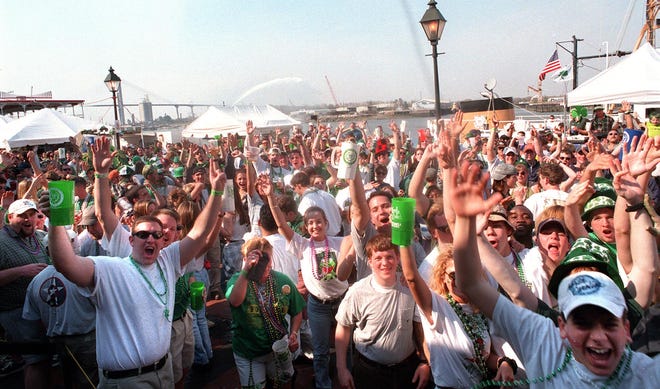
This is the City Talk column by Bill Dawers, a longtime contributor to the Savannah Morning News.
A wave of violence in spring 2022 prompted city officials to take a hard look at ways to manage and safeguard nightlife in downtown Savannah.
The resulting study is dotted with smart recommendations to address a host of issues, but at the same time raises important questions about the distribution of civic resources to neglected neighborhoods outside the downtown core.
The Responsible Hospitality Institute’s Sociable City Assessment was unveiled at a pair of public meetings last week, makes commonsense proposals for the expansion of some services so that more help is available to address issues that arise after 5 p.m. and on weekends.
The report notes that if the city’s code compliance department had extended hours, it would be easier to enforce the noise ordinance at venues and at short-term vacation rentals. If 311 operators were consistently available on nights and weekends, they could field complaints and maintenance requests that don’t necessarily require a police response.
Expanded hours for parking services could also take pressure off law enforcement. The department could obviously write tickets but could also potentially authorize towing of vehicles that are blocking lanes, dumpsters, driveways and sidewalks.
The document also suggests extended hours for mental health and homeless services.
Such services would presumably be coordinated by a proposed new Office of Nightlife, which could create efficiencies but could also end up being an unnecessary and expensive expansion of the city bureaucracy.
Reporting:A Savannah Office of Nightlife? Nightlife police? Group unveils nighttime management plan
RHI also details the city’s cumbersome approval processes for new businesses, especially those that are seeking alcohol licenses.
“Various departments are unaware of each other’s activities regarding the same applicant,” reads one especially salient passage, “and this confuses both the city and the applicant. Often applicants are given inconsistent or contradictory information from different departments, leading to delays and further confusion.”
“The City Council has a heavy hand in approving licensing after staff work has been completed, and this leads to some inconsistent outcomes for similar projects,” says the report. Amen.
The extended version of the report makes multiple recommendations for demystifying the alcohol permitting process. One suggestion calls for continued use of a preliminary approval committee that will “help un-silo departments” and facilitate the goal of getting new businesses open. Another provision would allow applicants to get simultaneous City Council approval for zoning and for alcohol to prevent unnecessary delays.
The report is also refreshingly frank about the city’s racial and geographical dividing lines, with participants reporting a low level of minority ownership of social venues and downtown businesses in general.
“There is speculation that minority-owned businesses have been priced out of the market due to a lack of awareness about support resources or with intention, due to the perceived application of different standards placed upon people of color to open a business,” says the report.
More City Talk:As Savannah mayor and council election nears, candidates gear up campaigns

RHI also notes that STVRs are eroding the downtown community and that there is “a perception that attracting visitors is prioritized over sustaining existing residents’ quality of life.”
Of course, after decades of heavy civic investment and emphasis in the downtown area, the view from other neighborhoods is quite different.
“Residents who live in Carver Village, Cloverdale, Feiler Park, etc. perceive downtown residents as having the benefit of prioritization for requests and support, in large part because of the presence of visitors,” reads another passage.
The current City Council was swept into office four years ago largely on promises of prioritizing the needs of residents over visitors and ensuring neighborhoods across the city are receiving equitable services. The report by RHI, which is worth reading in its entirety, is another measure of just how much work remains.
Contact Dawers via @billdawers on Twitter and CityTalkSavannah@gmail.com.
